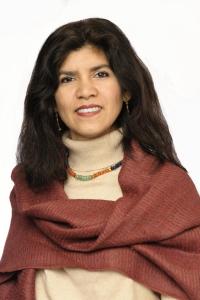
BBC Documentarians Come to Columbia Mailman
On February 22, the Columbia Mailman School hosted its first Global Health Certificate seminar, an abbreviated screening of the award-nominated BBC documentary Under Poisoned Skies, followed by presentations and a question-and-answer session with producer Owen Pinnell, director Jessica Kelly, and Shukri Al Hassan, professor of environmental pollution at the University of Basra in Iraq. Students from Columbia and the University of Basra were given the opportunity to ask questions.
The science informing the documentary came from research completed over ten years ago by Manuela Orjuela-Grimm, assistant professor of epidemiology and pediatrics at the Columbia University Medical Center. Orjuela-Grimm’s research examined exposure to polycyclic aromatic hydrocarbons and the link to chromosomal aberrations leading to leukemia in children in New York City. The documentary focused on examining the relationship between exposure to gas flares, used during oil production, and chromosomal abnormalities leading to higher rates of childhood leukemia.
Unusually, the BBC journalists conducted their own research while filming the documentary near the sprawling Rumaila oil field in the southern part of the country. Pinnell spoke about how they used satellite data to register pollution levels because the oil companies conceal their emissions. The journalists worked with Al Hassan to collect air and urine samples to measure levels of air pollutants (PAHs) and their metabolites. They also worked with the BBC’s Child Protection team and scientists around the world, including at Columbia, to ensure that the children and families whose samples were used in the study were well-protected.
Later, Kelly discussed the importance of delivering the results to participating families. The researchers chose to give the participants the option not to hear the results and Al Hassan, a member of the community, shared the results. It wasn’t always possible to tell parents and children separately, so families were given the results in a group aggregate and informed of the caveats of the study at the same time.
After the documentary’s release, Iraq’s oil minister pledged to end flares by 2026. The oil companies contacted by the BBC, however, deflected responsibility while at the same time claiming to limit flares; without official results, this is difficult to prove, and, as Pinnell pointed out, satellite monitoring has shown no change in flaring. While the United Nations lacks the mechanisms to hold corporations accountable, there is potential for future legal action against the oil companies.
The film was screened at COP27 in Egypt and at the WHO Pavilion, but Orjuela-Grimm discussed the need to publish the results in a scientific format: the film couldn’t discuss the results in detail, in the interests of watchability. Orjuela-Grimm stated that in order to effectively reach the UN and WHO, the team needed to publish “the results, from an unusual research partnership, and find the right forum.” Despite these challenges, however, a follow-up event later that week at the Columbia Journalism School reiterated the importance of a partnership between investigative journalism and public health to improve research and communicate results more effectively.
Watch a video of the Columbia Mailman event:


